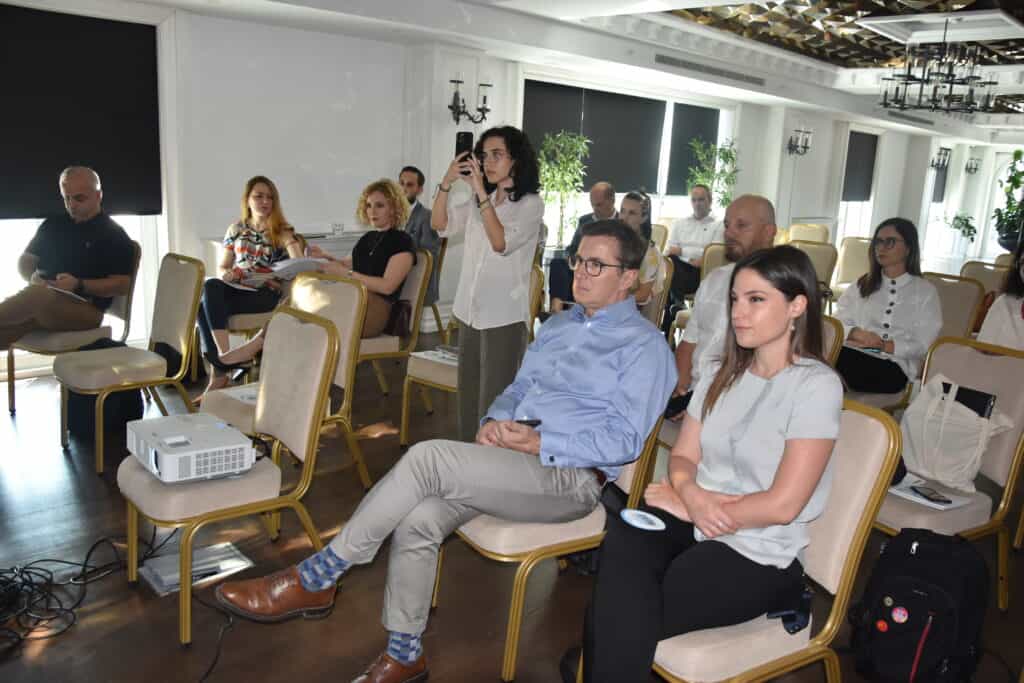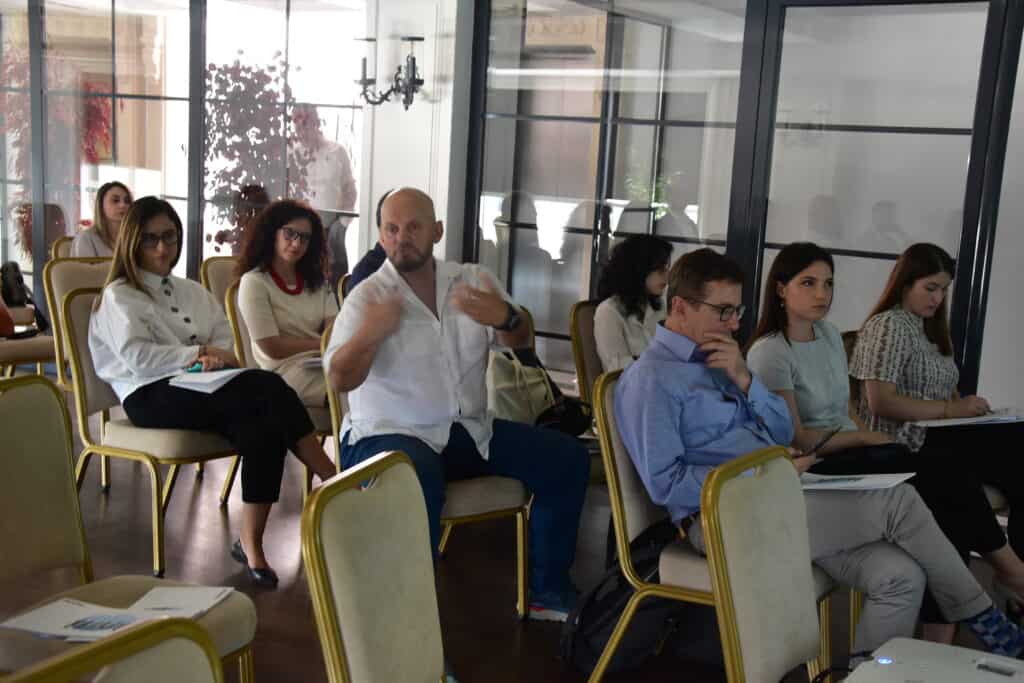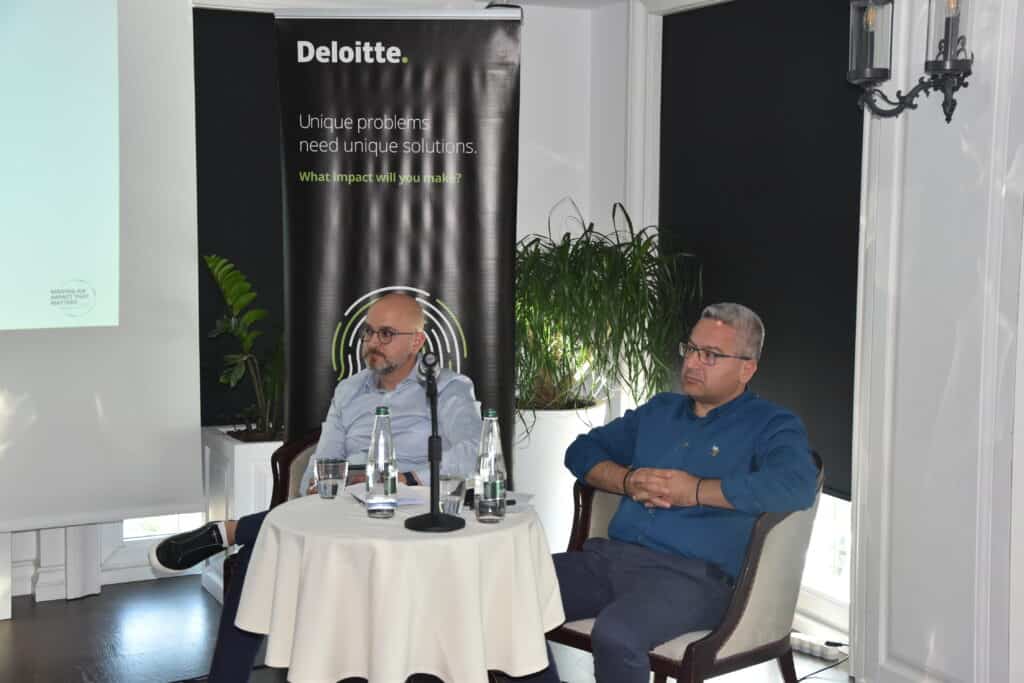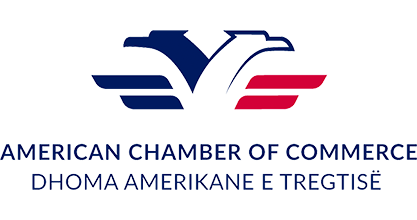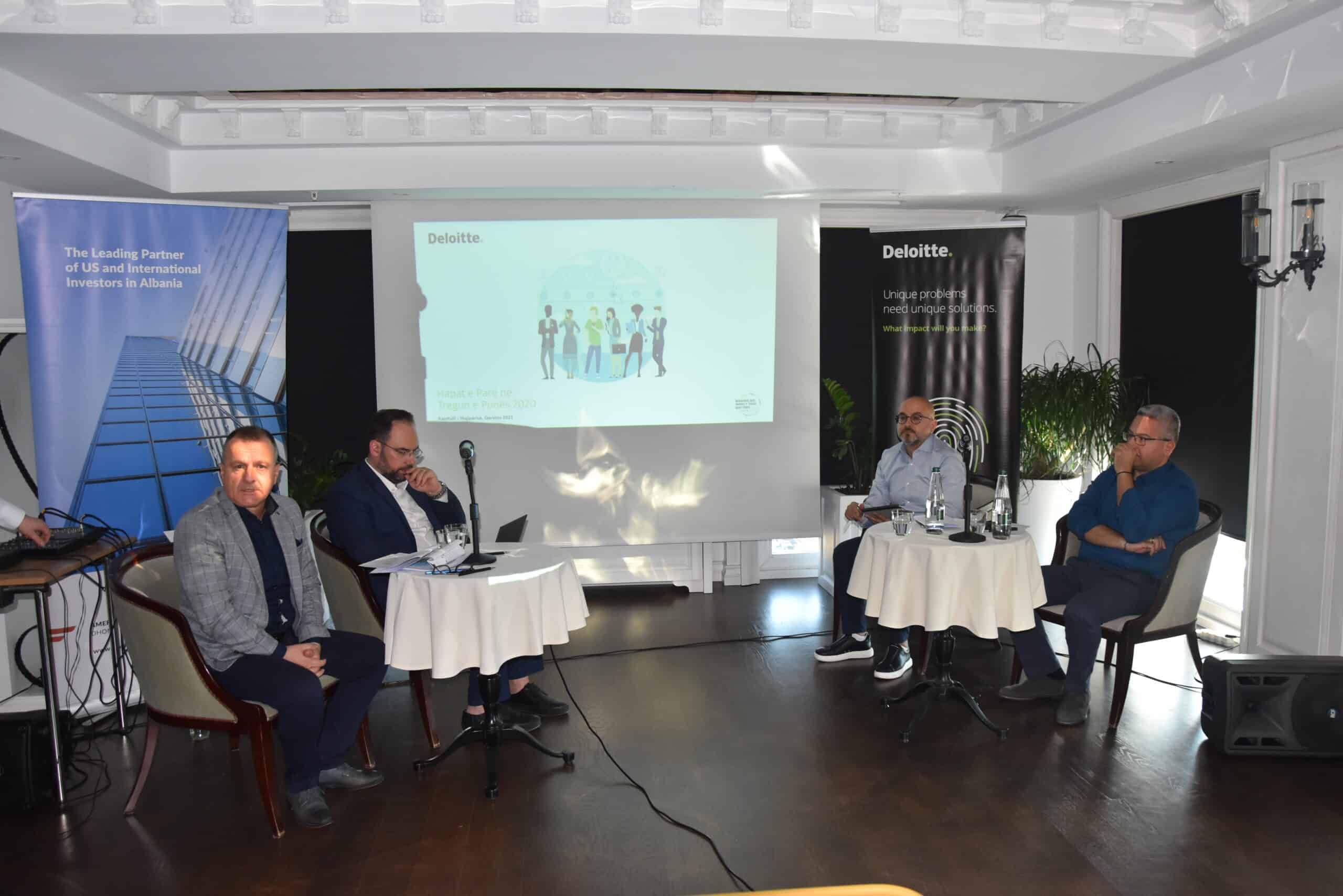The Gen Zs and Millennials have their own generational characteristics in the labor market and HR departments need to be attentive in addressing their specific expectations. The Labor and Ethics Committee of the American Chamber of Commerce in Albania worked with Deloitte Albania to organize a Business Forum on “Challenges and Opportunities Presented by a Young Workforce.” It discussed these special characteristics and how HR departments can help develop capacities of workers from the two generations so they can build a sustainable career. AmCham Executive Director Neritan Mullaj moderated the event, which offered a concrete analysis on the specifics and expectations of these two generations based on Deloitte Albania’s annual survey: “First Steps into the Labor Market.”
Roden Pajaj, chairman of the Labor and Ethics Committee and director of the HR Department at Deloitte Albania, presented the findings of the survey. It included how the Gen Z and Millennial generations are profiled on the basis of academic achievement, competencies they create at work and their career expectations.
The discussion panel also included Bledar Beta, a member of the AmCham Albania Board and representative of Philip Morris Albania, as well as Elvis Nosi, the HR director at Balfin Group.
Gen Z and Millennials believe that analytical thinking, self-management, teamwork and communication are the traits they have that are most valued by employers. Their aspirations go beyond the career ladder and focus on the creation of expertise in their field and an expectation that work will match their professional interests and give them opportunities for development. Competencies they expect to develop at work are the opportunity to learn new things and the ability to do analytical analysis of information and to draw conclusions. Their personal values put first family, health and a professional job.
These characteristics were addressed at the panel discussion, which looked into the needs of these two generations and how to best use their abilities to benefit the companies for which they work. Mr. Beta, who heads the finance department at Philip Morris Albania, explained that staff development depends heavily on training and the right topics — not allowing the routine to hinder the growth of capacity. The benefit of trainings was also echoed by Mr. Nosi who brought the experience of Balfin Group in developing its staff by alternating online trainings with in-person ones. However, the trends show that these younger workers don’t fit too well in online training sessions and HR departments need to be more creative with trainings to be effective. Balfin Group sees these trends especially in the tourism sector, where it has become more difficult to find qualified staff. Meanwhile HR departments have started to change the mold used during recruitment. Those with excellent grades in school are not always excellent in group work, and the features that matter most are the desire to learn and self-management.
The panelists also focused their discussion at the worrying and pronounced trend of Millennials and Gen Z workers planning to leave the country in the hope of a better alternative. Although it remains a positive experience to work and study abroad, experts believe that it is the responsibility not only of the state but also of employers to create favorable conditions to maintain these human capacities in the country. Mr. Pajaj cited the example of Ireland and education policies in the 50s and 60s, investing in their education in America and then utilizing the capacities created. It is necessary that not only the state but also employers design effective career development policies to bring young people educated abroad back to Albania.
